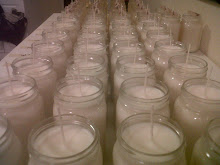This question was posed back in December/January in 2006 while a group of us were backpacking down the in Daniel Boone National Forest. DB has long been my favorite frontiersman in American History. I didn't know much about him until recently when I started reading a biography by Robert Morgan. DB's life has a lot to say about pioneering the American landscape, and his legacy lives on and confronts us with some current issues. The conflict that existed mostly throughout his life was preserving his role as a frontier woodsman while populating the state of Kentucky.
From an early age Boone would go into the woods and hunt and trap. He would commonly be out in the wilderness for days and provided his family with food and furs from an early age. He made most of his money for his family through the fur trade. Theres a story in which one season he killed 91 bears in the Virginia wilderness. This was the attitude of many men on the western frontier, and the frontier would move further west as the hunting lands in the area were used up. Boone only reportedly made any kind of comment regarding how he treated the land and its resources. It was simply not thought as something that could be used up like it had in Europe.
Boone built one of the first roads into Kentucky by way of the Cumberland Gap. It was more of a trail that used Indian hunting trails and buffalo traces that could accommodate people on foot with pack horses. He brought people and settled in the "promised land" of Kentucky. Kentucky was a much contested area among settlers in different colonies, the colonies governments, and the Indians who believed it to be a sacred hunting ground. Indeed it was because it had some of the richest area of game for the time. As people filed into Kentucky they would claim huge tracts of land to start farming. After a few years the soil would be worthless from only planting corn on it and the field would be used for a school house or cemetery. Morgan also goes on to point out the fact that as settlers moved in they would clear as many trees as they could. The forests were dark and a good place for Indians to hide in ambush of the settlements.
The American frontier life was hard on the environment of this continent and we still seem to live by the values of those days. America at the time was viewed as endless and people bought land for pennies an acre and spread out across the western lands. They destroyed populations of game and the old growth forests in which they lived. Today our cities are growing out into the frontier that is the edge of the cities. Everyone wants their plot of land in places such as Anderson Meadows and Eagles Watch, and most Americans feel it their right. Our cities are being destroyed by this sprawling landscape just as Daniel Boone's forests were being destroyed. The American suburbs are huge. Houston is 100 miles in diameter! Transportation is a huge problem through our cities with declining infrastructure, smog, and traffic jams. The alternative forms that seem to work in Europe and other places don't sit well with the American attitude. Why ride the bus when you can be on the open road blazing the trail to work? America is all about personal mobility and a personal mode seems to be attached to Americans at the hip whether its a car, bike, truck, or skateboard. We don't have a collective mindset in transportation that Europe seems to have, and we have a unique problem with our sprawling cities and need for the feeling of freedom. Just like Daniel Boone we still live life with those frontier values. So what is our American solution to the transportation problem in the land of the free and the home of the brave? Like Daniel Boone we need to reject the solutions back East and blaze into the new frontier. We are a self sufficient people (at least we like to think that.)
Tuesday, October 21, 2008
WWDBD? (What Would Daniel Boone Do?)
Labels:
Daniel Boone,
freedom,
frontier,
personal mobility,
transportation
Subscribe to:
Post Comments (Atom)

No comments:
Post a Comment